API Claude 3.5 Haiku foi lançada e criticada como muito cara pelos internautas

Recentemente, a Anthropic anunciou que Claude 3.5 Haiku está agora acessível via API. Claude 3.5 Haiku está disponível através da API da Anthropic, Amazon Bedrock e Vertex AI do Google Cloud. Alex Albert, o responsável, acrescentou que o modelo também foi atualizado com conhecimentos até julho de 2024 - o mais recente de todos os modelos Claude.

No início, todos estavam muito animados, mas ao ver o preço do Claude 3.5 Haiku, todos reclamaram que era muito caro! O preço é de 1 dólar por milhão de tokens de entrada e 5 dólares por milhão de tokens de saída. Embora o desempenho do modelo tenha melhorado, o preço do Haiku aumentou quatro vezes em relação ao anterior, não é de se admirar que os internautas não possam aceitar isso.
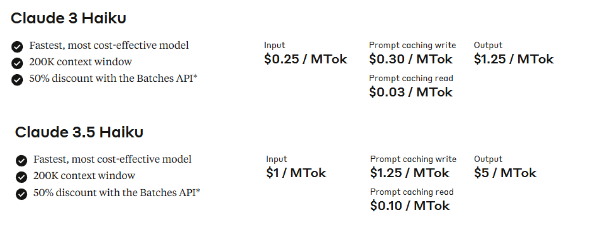
Vamos ver o que torna o Claude 3.5 Haiku tão especial para justificar um preço tão alto?
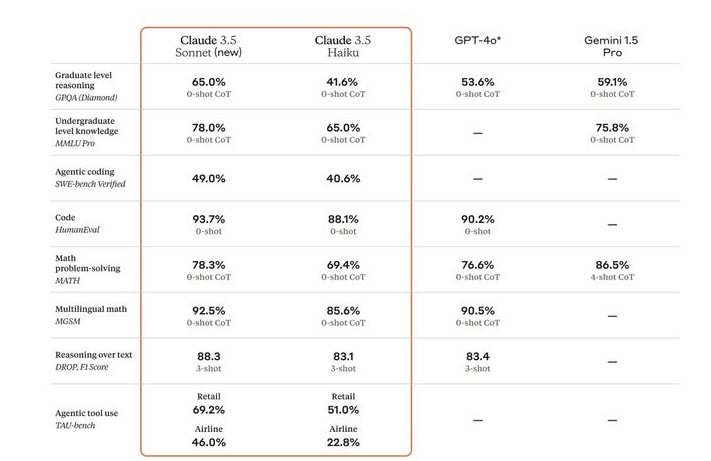
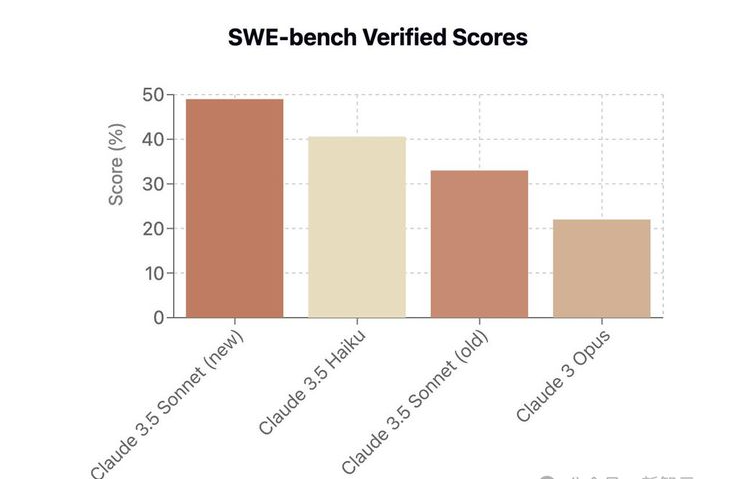
A Anthropic afirma que o Claude 3.5 Haiku oferece apenas um modelo de texto puro e suportará entradas de imagem no futuro. Nos dados de benchmark, podemos ver que o 3.5 Haiku se aproxima do desempenho do Claude 3.5 Sonnet e supera todos os modelos Claude anteriores, exceto o novo 3.5 Sonnet, em tarefas de programação e agente.
Vamos olhar alguns casos de uso listados pela Anthropic para o Haiku:
- Preenchimento de código: Claude 3.5 Haiku oferece sugestões de código rápidas e precisas para aumentar a eficiência do desenvolvimento.
- Chatbots interativos: Capacidades de conversação aprimoradas e respostas rápidas o tornam adequado para chatbots de grande escala.
- Extração e anotação de dados: Processamento e classificação eficientes de informações, adequados para dados não estruturados em instituições financeiras, médicas e de pesquisa.
- Moderação de conteúdo em tempo real: Capacidades de inferência aprimoradas oferecem moderação de conteúdo confiável para a segurança de plataformas de mídia social e organizações de mídia.
Por que as pessoas estão insatisfeitas com o preço do Claude 3.5 Haiku?
Primeiro, precisamos entender que o Claude 3.5 Haiku compete com o GPT-4o Mini da OpenAI e o Gemini 1.5 Flash do Google. Os resultados da comparação desses três modelos podem fornecer a resposta.
Já discutimos o preço do Haiku, agora vamos olhar os preços do GPT-4o mini e do Gemini 1.5 Flash:
- GPT-4o mini: O modelo GPT-4 mini da OpenAI custa 0,15 dólares por milhão de tokens de entrada e 0,6 dólares por milhão de tokens de saída.
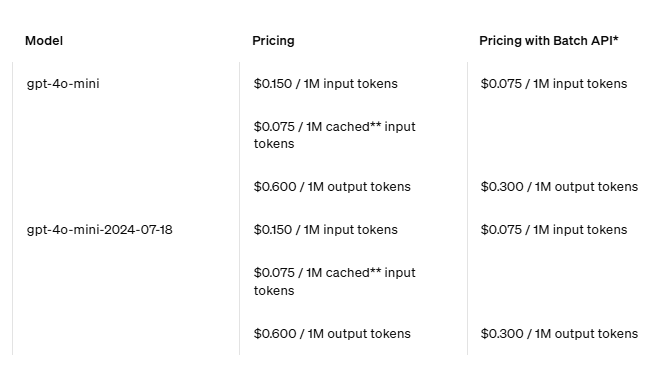
- Gemini 1.5 Flash: Para prompts com menos de 128.000 tokens, o Gemini 1.5 Flash custa 0,075 dólares por milhão de tokens de entrada e 0,3 dólares por milhão de tokens de saída; acima de 128.000 tokens, custa 0,15 dólares por milhão de tokens de entrada e 0,6 dólares por milhão de tokens de saída.
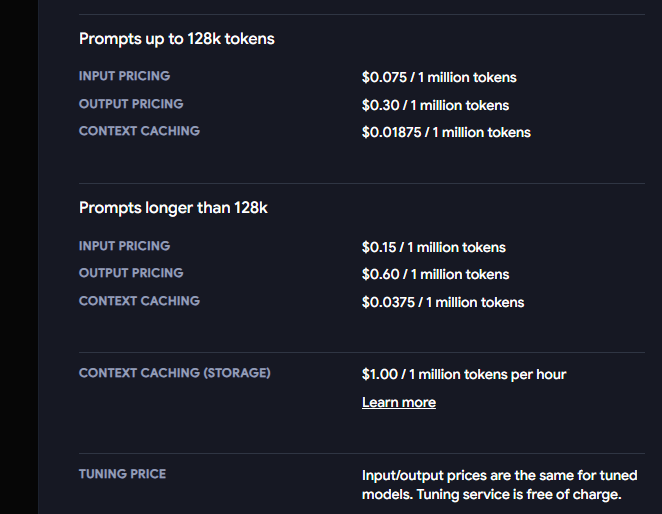
Alguém até criou uma tabela comparativa de desempenho para os três modelos.
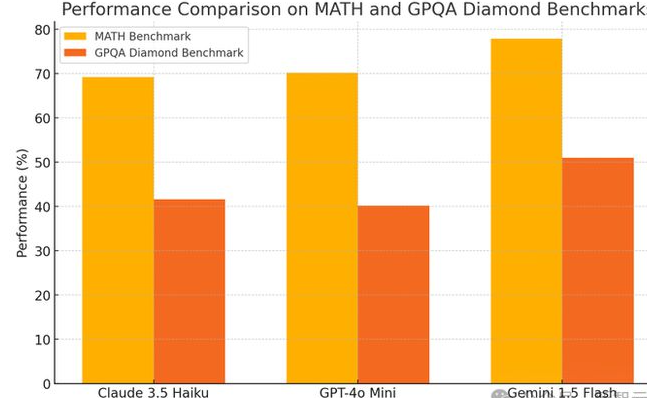
Resumindo:
O Claude 3.5 Haiku tem desempenho inferior ao GPT-4o mini em muitos benchmarks, mas é mais caro; em comparação com o Gemini 1.5 Flash, o Claude 3.5 Haiku tem uma pequena melhoria de desempenho, mas é várias vezes mais caro.
É compreensível que algumas pessoas achem essa precificação absurda. Tomemos o XXAI como exemplo, que combina mais modelos de IA do que outras ferramentas de IA. Ele oferece aos usuários a oportunidade de experimentar até 13 modelos de IA em uma única ferramenta e fornece uma solução integrada por apenas 9,9$ por mês! Esse é um preço muito competitivo. Precisamos entender que um produto, por mais poderoso que seja, deve considerar a realidade e a perspectiva dos usuários para atrair mais pessoas.

A Anthropic deu razões no X para o aumento do preço do Claude 3.5 Haiku
A Anthropic acredita que nos testes finais, o Haiku superou muitos de seus modelos top anteriores, como o Claude 3 Opus, em muitos benchmarks, por uma fração do custo. Portanto, eles aumentaram o preço do Claude 3.5 Haiku para refletir a melhoria na inteligência.
Mas nem todo mundo aceita esse preço.

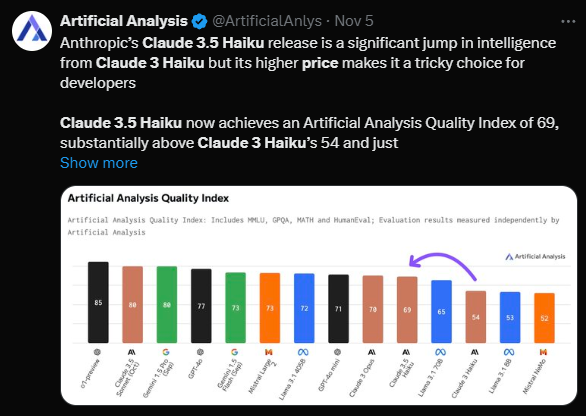
Expectativas sobre a resposta da Anthropic
Diante das diversas opiniões dos desenvolvedores sobre o preço do Claude 3.5 Haiku, a resposta da Anthropic é sem dúvida um tópico que merece atenção. À medida que mais e mais empresas e desenvolvedores começam a se interessar e usar tecnologias de IA, a sensibilidade do mercado aos preços aumenta, especialmente diante da crescente concorrência de preços de grandes empresas como OpenAI e Google. Portanto, a Anthropic deve considerar seriamente como ajustar sua estratégia de preços para melhor atender às necessidades dos desenvolvedores e às expectativas do mercado.